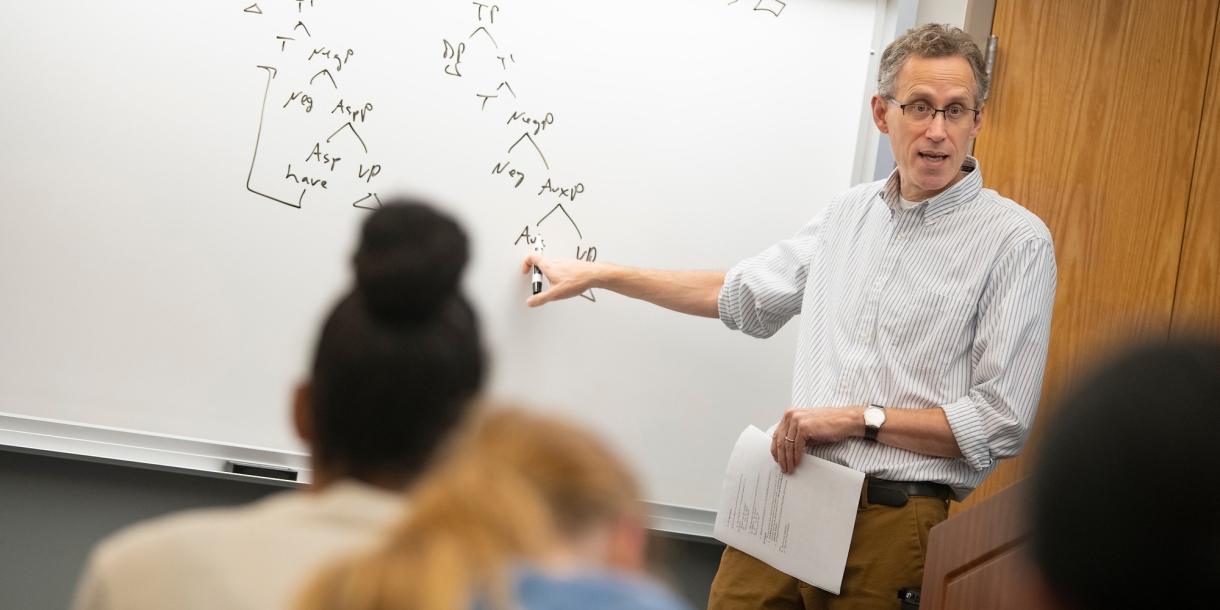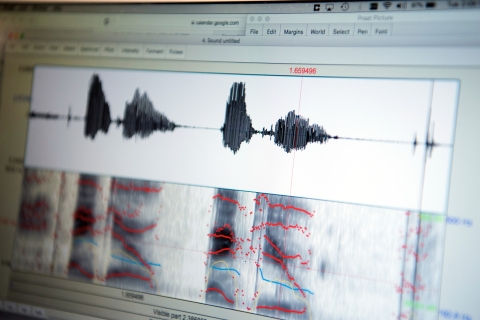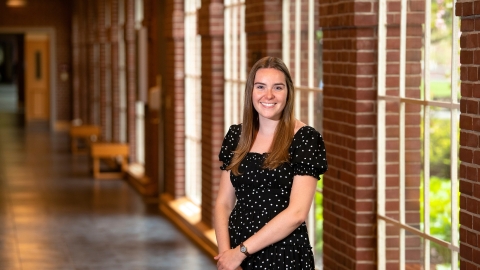Linguistics

How does language work? What are the common properties of all human languages? What happens in someone's brain when they're learning a language?
As a linguistics major, you'll explore these questions and many more as you discover how to analyze language and study it scientifically.
You'll dive deep into courses such as Syntax, Typology & Universals; Psycholinguistics; and Bilingualism. You'll design innovative experiments and uncover new patterns in language. And when you're ready to pursue even tougher questions, you may join Bucknell's Linguistics Lab, or do supervised research in theoretical grammar.
Through this journey, you'll gain the analytical skills needed for job success in a wide range of careers, including computational linguistics, speech-language pathology, education, law, business, academia and nonprofit work.
Degree Programs
Bucknell offers a major and minor in linguistics. The major includes a two-semester introductory sequence, intermediate work in theoretical grammar, intermediate work in the cognitive mechanisms of language, an advanced seminar and two electives. Research opportunities are available in the areas of language production and comprehension, language acquisition and theoretical grammar.

Join Us in the Linguistics Lab
As a student of linguistics at Bucknell, you may conduct research in the Linguistics Lab, where students and faculty explore how speakers produce words and sentences.
We examine the fascinating processes of lexical retrieval (finding words), constructing sentences (lining words up in the right order) and making grammatical decisions.





